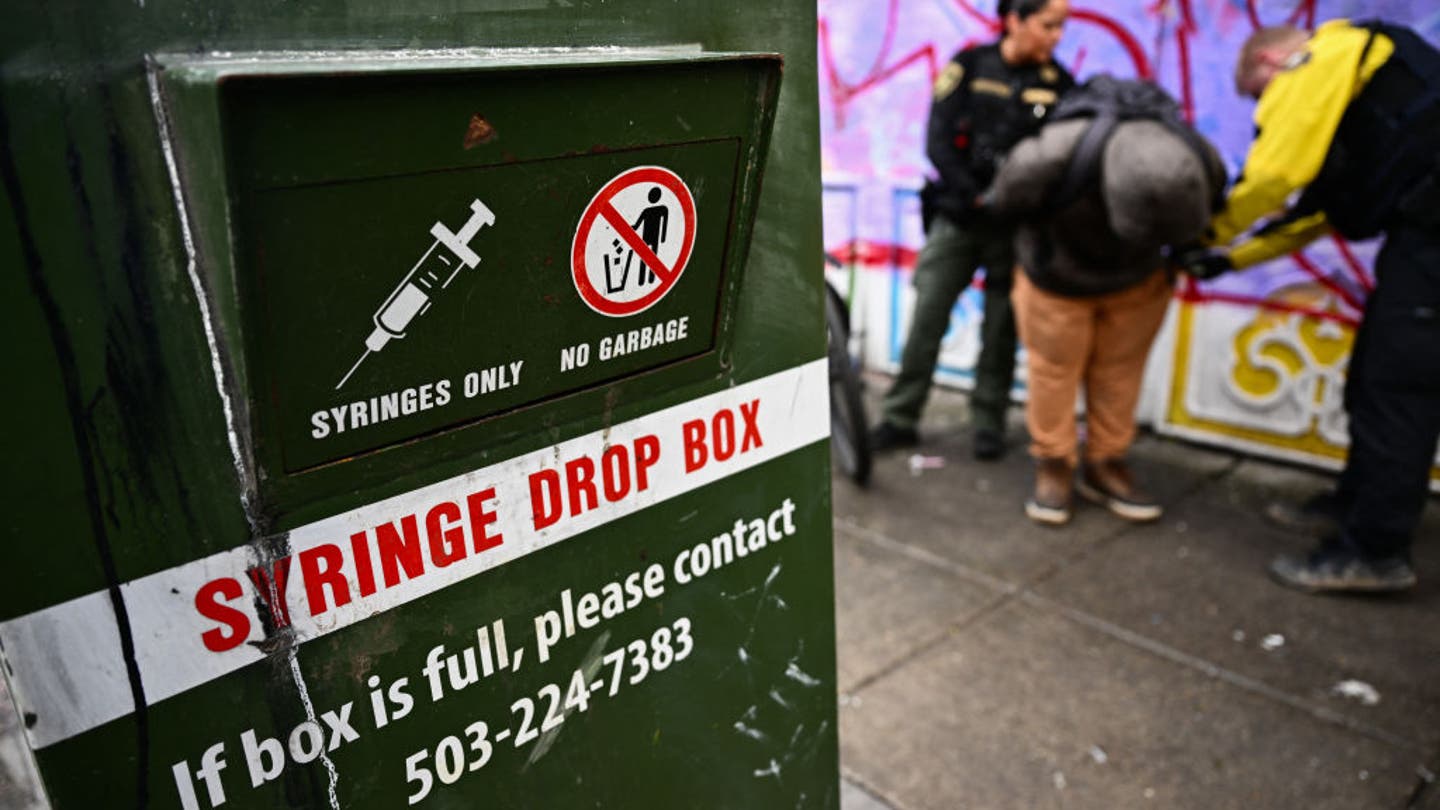Oregon has reversed its 2020 law decriminalizing drugs, a move supported by GOP House leader Jeff Helfrich. Despite widespread support for decriminalization, overdose deaths, drug use, crime, and homelessness have surged since its implementation. The new law aims to combat these issues by imposing stricter penalties and incentivizing treatment programs for personal drug possession.
Oregon's groundbreaking decision to decriminalize drugs in 2020 has been met with mixed results, raising concerns about the need for a more comprehensive approach. The state's pivot back towards criminalization, embodied in the recently enacted HB 4002, reflects a shift in perspective on how to effectively address the ongoing drug crisis.

Oregon's Drug Recriminalization: A Pivotal Step in Addressing the State's Addiction Crisis
State House Republican leader Jeff Helfrich, a vocal supporter of the recriminalization measure, has emphasized the alarming spike in overdose deaths, drug usage on the streets, crime, and homelessness that followed the 2020 decriminalization. He contends that Democrats had the opportunity to curb these negative consequences but failed to take action.
HB 4002 introduces tougher penalties for drug sales in public while reclassifying personal drug possession as a misdemeanor offense. Notably, individuals caught with small amounts of hard drugs, such as fentanyl, heroin, and meth, can choose between facing a possession charge or enrolling in treatment programs. To avoid fines, those opting for treatment must complete a mandatory behavioral health program.

Oregon's Drug Recriminalization: A Pivotal Step in Addressing the State's Addiction Crisis
This treatment option aims to provide a rehabilitative approach rather than solely punitive measures. However, it comes with strict eligibility criteria. Portland police chief Bob Day has outlined that those seeking treatment must have no outstanding charges, warrants, or violent behavior and be medically stable.
While the new law has been implemented statewide, Helfrich acknowledges the need for further action to tackle Oregon's drug crisis. He advocates for increased Republican representation in positions of governance, suggesting that their policies are better suited to addressing this complex issue.

Oregon's Drug Recriminalization: A Pivotal Step in Addressing the State's Addiction Crisis
Oregon's experience with drug decriminalization underscores the complexities of drug policy and the need for a multifaceted approach that balances public safety, individual rights, and harm reduction strategies. The recriminalization of drugs may be a step in the right direction, but it remains to be seen whether this alone will be sufficient to reverse the alarming trends that prompted this legislative change.
Additional challenges lie ahead, including the potential for racial disparities in drug arrests and the need for adequate funding for both law enforcement and treatment programs. As Oregon grapples with the consequences of its previous drug policy and strives to find a more effective path forward, other jurisdictions may look to its experience for lessons in navigating the complexities of drug legalization and regulation.










